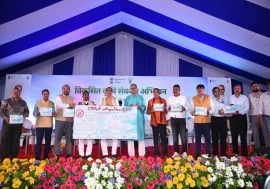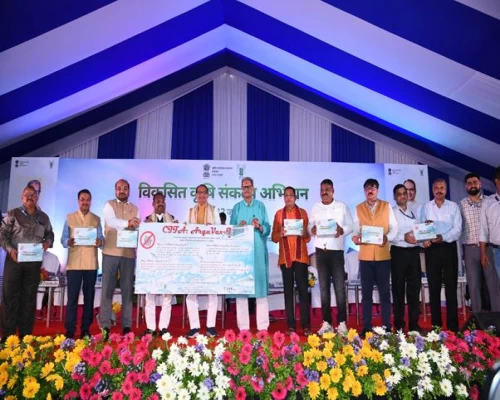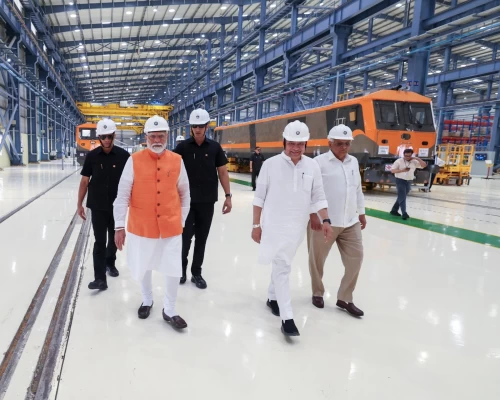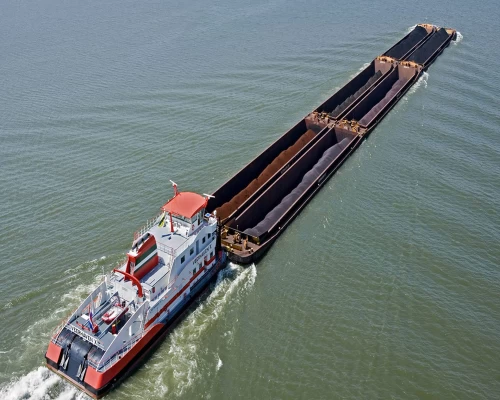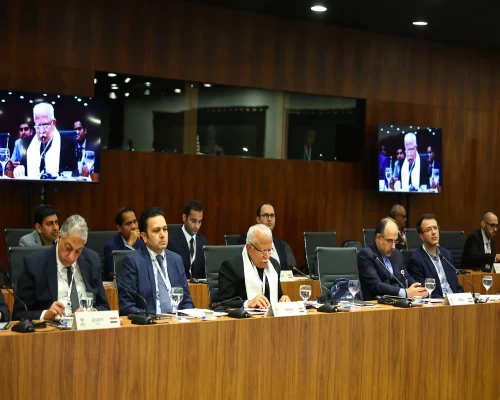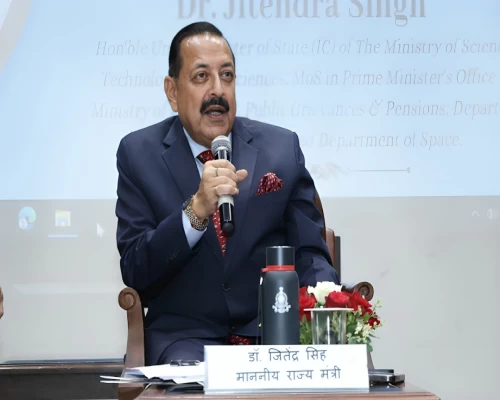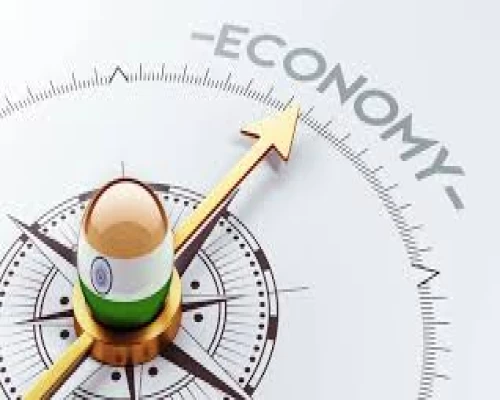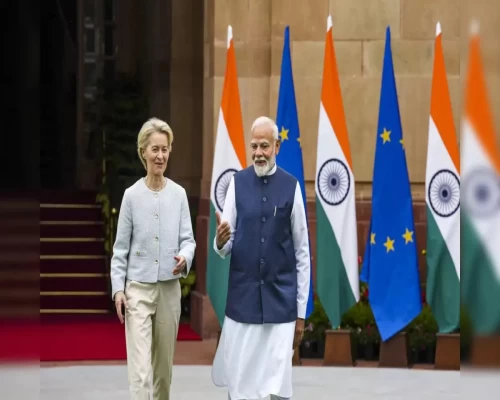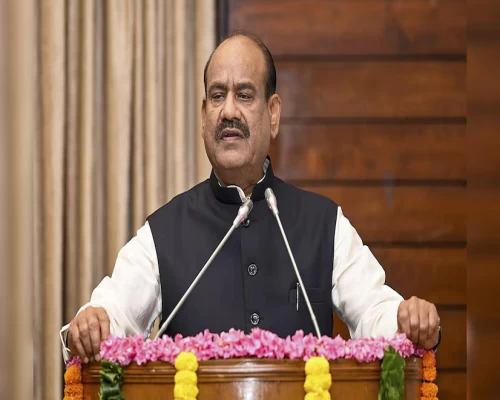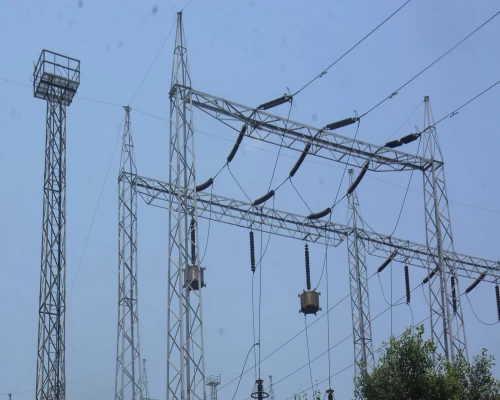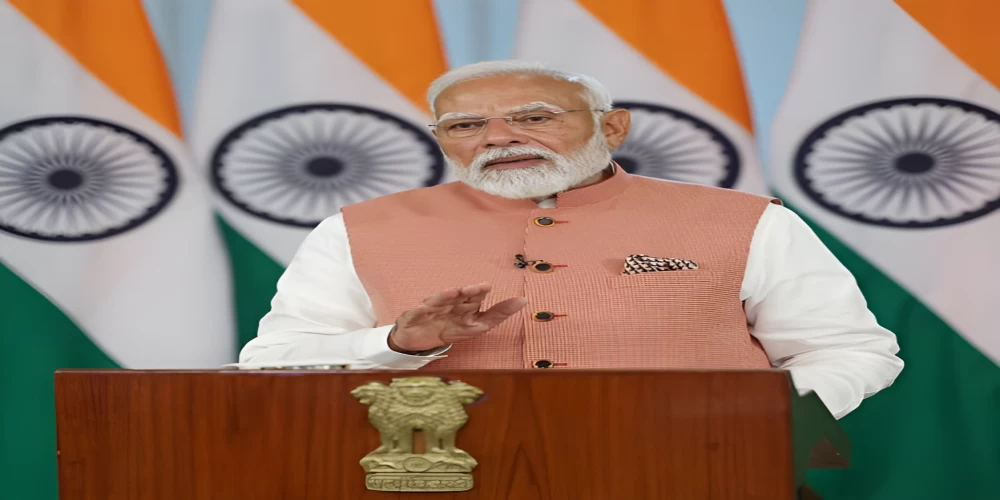
New Delhi: Prime Minister Narendra Modi delivered his remarks at the inauguration of the third edition of India Energy Week 2025 via video message today. Addressing the gathering at Yashobhoomi, he emphasised that the attendees are not just part of the Energy Week but are also integral to India’s energy ambitions.
India Energy Week was envisioned as more than just another industry conference—it was designed to be a dynamic platform redefining global energy dialogues. In just two years, this self-funded initiative has achieved precisely that, becoming the world’s second-largest energy event. IEW 2025, scheduled from 11 to 14 February at Yashobhoomi, New Delhi, represents a significant milestone in shaping the global energy narrative.
Highlighting that experts worldwide believe the 21st century belongs to India, Modi said India is driving not only its growth but also the growth of the world, with the energy sector playing a significant role. He emphasised that India’s energy ambitions are built on five pillars: harnessing resources, encouraging innovation among brilliant minds, economic strength and political stability, strategic geography making energy trade attractive and easier, and a commitment to global sustainability. These factors, he said, are creating new opportunities in India’s energy sector.
India has grown from the tenth-largest to the fifth-largest economy in the past decade. Modi highlighted that India’s solar energy generation capacity has increased thirty-two times in the last ten years, making it the third-largest solar power generating nation in the world. He noted that India’s non-fossil fuel energy capacity has tripled and that India is the first G20 country to achieve the goals of the Paris Agreement. He emphasised India’s achievements in ethanol blending, with a current rate of nineteen per cent, leading to foreign exchange savings, substantial farmer revenue, and significant reductions in CO2 emissions. He highlighted India’s goal of achieving a twenty per cent ethanol mandate by October 2025. He said India’s biofuels industry is ready for rapid growth, with 500 million metric tonnes of sustainable feedstock. He further noted that during India’s G20 presidency, the Global Biofuels Alliance was established and is continuously expanding, now involving 28 nations and 12 international organisations. This alliance, he said, is transforming waste into wealth and setting up Centres of Excellence.
India is continuously reforming to fully explore the potential of its hydrocarbon resources. Modi said major discoveries and extensive expansion of gas infrastructure are contributing to the growth of the gas sector, increasing the share of natural gas in India's energy mix. He noted that India is currently the fourth-largest refining hub and is working to increase its capacity by 20 per cent.
India’s sedimentary basins hold numerous hydrocarbon resources, some of which have already been identified, while others await exploration. Modi said that to make India's upstream sector more attractive, the government introduced the Open Acreage Licensing Policy (OALP). He emphasised that the government has provided comprehensive support to the sector, including opening the Exclusive Economic Zone and establishing a single-window clearance system. Changes to the Oilfields Regulation & Development Act now offer stakeholders policy stability, extended leases, and improved financial terms. These reforms, he said, will facilitate the exploration of oil and gas resources in the maritime sector, increase production, and maintain strategic petroleum reserves.
Due to several discoveries and the expanding pipeline infrastructure in India, the supply of natural gas is increasing. Modi said this will lead to a rise in the utilisation of natural gas in the near future and highlighted numerous investment opportunities in these sectors.
Hardeep Singh Puri, minister of petroleum and natural gas, in his address at the event, highlighted the growing significance of the event, which has rapidly become the second-largest energy conference in the world in just three years. This year’s edition has drawn over 70,000 energy professionals from more than 50 countries, including over 20 ministers and 100 CEOs from Fortune 500 energy companies, making it a key forum for discussions on the evolving global energy landscape.
Puri said IEW 2025 comes at a crucial juncture amid major geopolitical shifts that have reshaped the global energy order. The conference, he said, offers a unique opportunity for policymakers, industry leaders, and stakeholders to engage in meaningful dialogue, exchange ideas, and chart a course for a balanced and inclusive energy transition. While reaffirming India’s commitment to sustainability, he said the transition must be pragmatic, recognising the continued role of hydrocarbons alongside renewables, hydrogen, and biofuels. He cited the International Energy Agency’s projection of global energy investment surpassing USD 3 trillion in 2024, with USD 2 trillion dedicated to clean energy technologies, as a clear indication of the accelerating shift towards cleaner energy sources.
India is driving energy innovation and entrepreneurship, with major global energy firms like BP, Shell, ExxonMobil, and Chevron operating Global Capability Centres in India, employing thousands of Indian engineers to develop cutting-edge solutions for energy efficiency, data analytics, and sustainable operations. Puri also acknowledged the role of more than 500 entrepreneurs participating in start-up challenges such as Avinya and Vasudha, and the 700 exhibiting companies, including over 100 start-ups, showcasing AI-driven energy solutions, quantum computing applications, and advancements in biofuels and battery technologies.
A key theme of his address was energy justice, warning against fragmented energy policies that could deepen inequality by leaving developing economies behind in the transition. He emphasised the need for resilient supply chains in critical minerals, semiconductors, and emerging energy technologies, calling for global collaboration to prevent disruptions that could hinder progress. He also pointed out that India is strategically investing in diverse energy sources, including scaling up biofuel production, increasing its gas share from six to fifteen per cent, and targeting five million metric tonnes of hydrogen production by 2030 to ensure a smooth transition without compromising energy security.
Puri urged all stakeholders to leverage India Energy Week as a platform for forging transformative partnerships and shaping the global energy agenda. He invited the 6,000-plus delegates to engage in the conference’s discussions over the next four days, focusing on strategies to stabilise energy markets, drive technological advancements, and enhance international cooperation. With India playing an increasingly central role in the global energy ecosystem, IEW 2025 is set to be a landmark event for defining the future of energy.
BI Bureau


